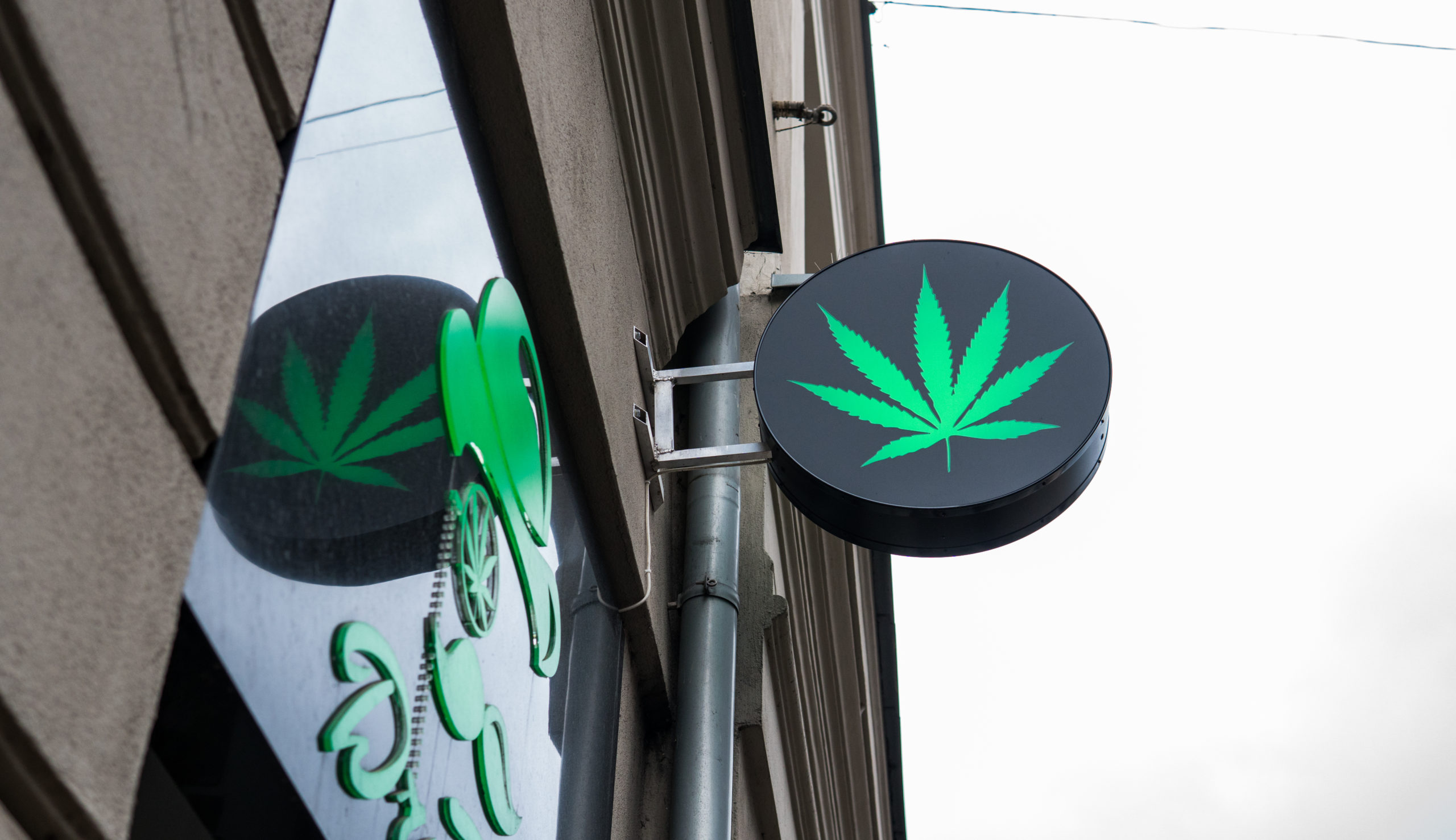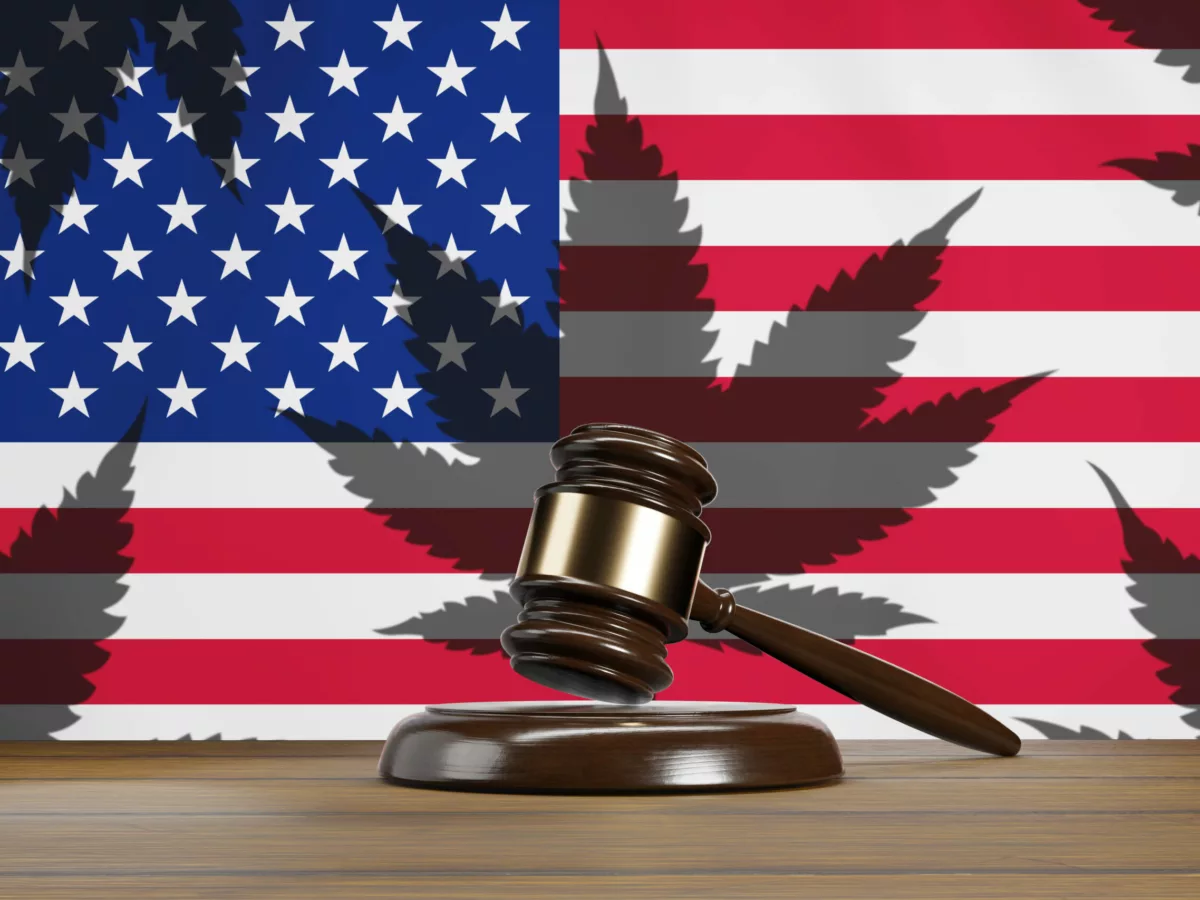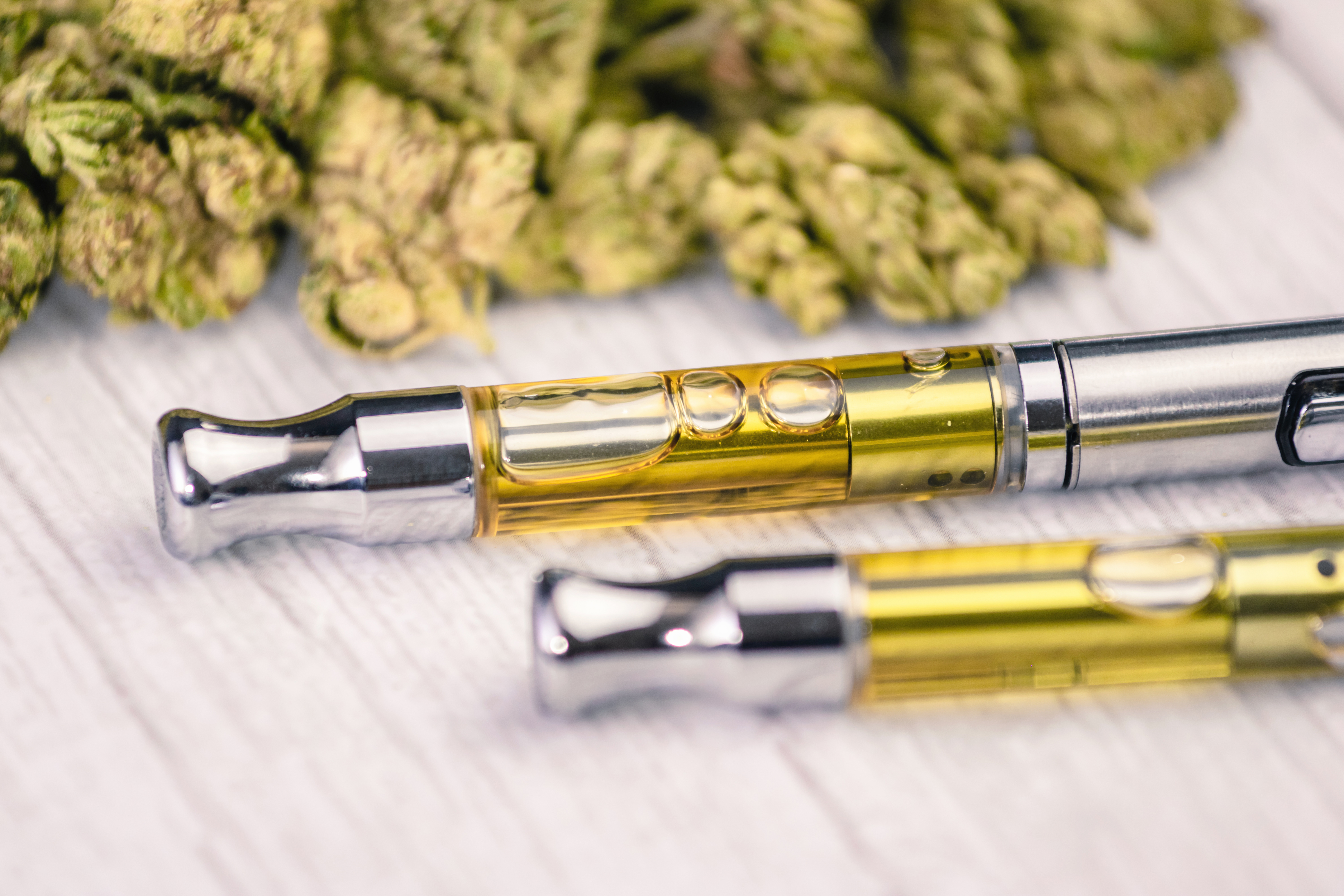The D.C. Council on Tuesday voted down an emergency measure to ramp up enforcement against the District’s many unregulated cannabis businesses – storefronts and delivery services that “gift” weed with the purchase of other goods, like t-shirts and potted plants.
The bill, introduced late last week by Council Chairman Phil Mendelson, would have granted D.C.’s Alcoholic Beverage Control (ABC) Board more power to impose hefty fines and shut down weed businesses that operate without a permit.
It would also have made it easier to purchase cannabis at licensed medical dispensaries by allowing adults 21 and older to “self-certify” that they use weed for medical purposes, rather than requiring a doctor’s note.
But with only eight votes in favor, the measure fell just one vote short of the two-thirds approval it needed to pass as emergency legislation. Councilmembers Janeese Lewis George, Christina Henderson, Elissa Silverman, Robert White and Trayon White voted against the bill.
In his opening remarks on the bill on Tuesday, Mendelson said increasing enforcement against unlicensed weed shops is necessary to protect D.C.’s legal cannabis operators, who have seen sales plummet due to competition from the gifting market.
He portrayed gifting shops and delivery services as highly profitable businesses run by “illegal operators” living outside the District. “Their business is around $500 million a year,” Mendelson said. “That’s a lot of money. And that’s not D.C. money, that’s out-of-state money.”
Mendelson on Monday said that a quarter of D.C. gifting businesses don’t even have a basic business license, and that two-thirds are owned by people who aren’t District residents. He didn’t offer any sources to back those numbers up.
Ward 5 Councilmember Kenyan McDuffie had softer words for unlicensed weed businesses. “Today we have a number of gifting shops, some of which are Black-owned and employ Black and brown D.C. residents,” he said. “It’s important to acknowledge that.”
McDuffie proposed an amendment to Mendelson’s bill on Tuesday that would have extended the grace period for gifting shops while increasing the number of medical dispensary permits in the District from eight to 32 to accommodate more patients.
Ward 6 Councilmember Charles Allen said that while it’s unfortunate that Congress continues to block D.C. from regulating adult-use pot, “gifting” businesses remain illegal for now. “There is no such thing as a commercial transaction that is I-71 compliant,” Allen said.
(I-71 was the 2014 ballot initiative that legalized the possession, home cultivation, and gifting of weed in the District.)
Several councilmembers raised concerns that Mendelson’s bill was being rushed through the legislative process and could end up disproportionately harming D.C.’s Black community. (A significant number of business owners and employees in the gifting world are Black, though the actual percentage is still up for debate.)
“When we consider the disparate and catastrophic impact of the War On Drugs on our communities, it’s clear there will be a significant racial equity impact if this legislation moves forward,” said Ward 4 Councilmember Janeese Lewis-George.
Lewis-George questioned the need to pass an emergency bill when the council is already working on permanent legislation to launch a recreational cannabis market that would address some of the same issues around the gifting economy. She said an emergency bill wouldn’t receive a racial equity assessment from D.C. Council’s recently created Office Of Racial Equity.
“The whole purpose for creating the Office of Racial Equity at the council is for issues just like this.”
At-Large Councilmember Elissa Silverman also raised concerns about the timing and effectiveness of Mendelson’s bill.
“I just can’t get behind making what are drastic policy changes on an emergency basis,” Silverman said. “This dramatically alters how cannabis will be bought and sold in the District of Columbia.”
Silverman recognized that the proliferation of unregulated weed businesses across the District has become a “real messy problem,” and poses many public health and safety risks for residents. However, she said Mendelson’s emergency bill would only shore up medical cannabis operators without solving those underlying issues.
At-Large Councilmember Robert White said Mendelson’s bill could lead to Black entrepreneurs with limited access to capital getting locked out of D.C.’s legal cannabis industry. “Many of them do want to find a way to come to the legal side of this,” he said, adding that “we don’t want to shut folks down.”
Ward 8 Councilmember Trayon White said he was concerned about Mendelson’s proposed fines for unregulated weed businesses, which would reach up to $30,000. “It just gives me unrest in my spirit to know that’s where we’re at with this bill,” he said.
“The historical, racial disparities around cultivation, sale, and use or marijuana are only further aggravated by these provisions,” he added.
On Monday, the D.C. Chapter of the NAACP had issued a statement condemning Mendelson’s bill and urging members of the council to vote against it.
“To punish these primarily Black-owned businesses is a heinous act,” said Abiola Agoro, NAACP DC’s Political Action Chair. “You cannot help Black DC residents achieve equity while pulling the rug from under those in a system that continues to be stacked against them.”






